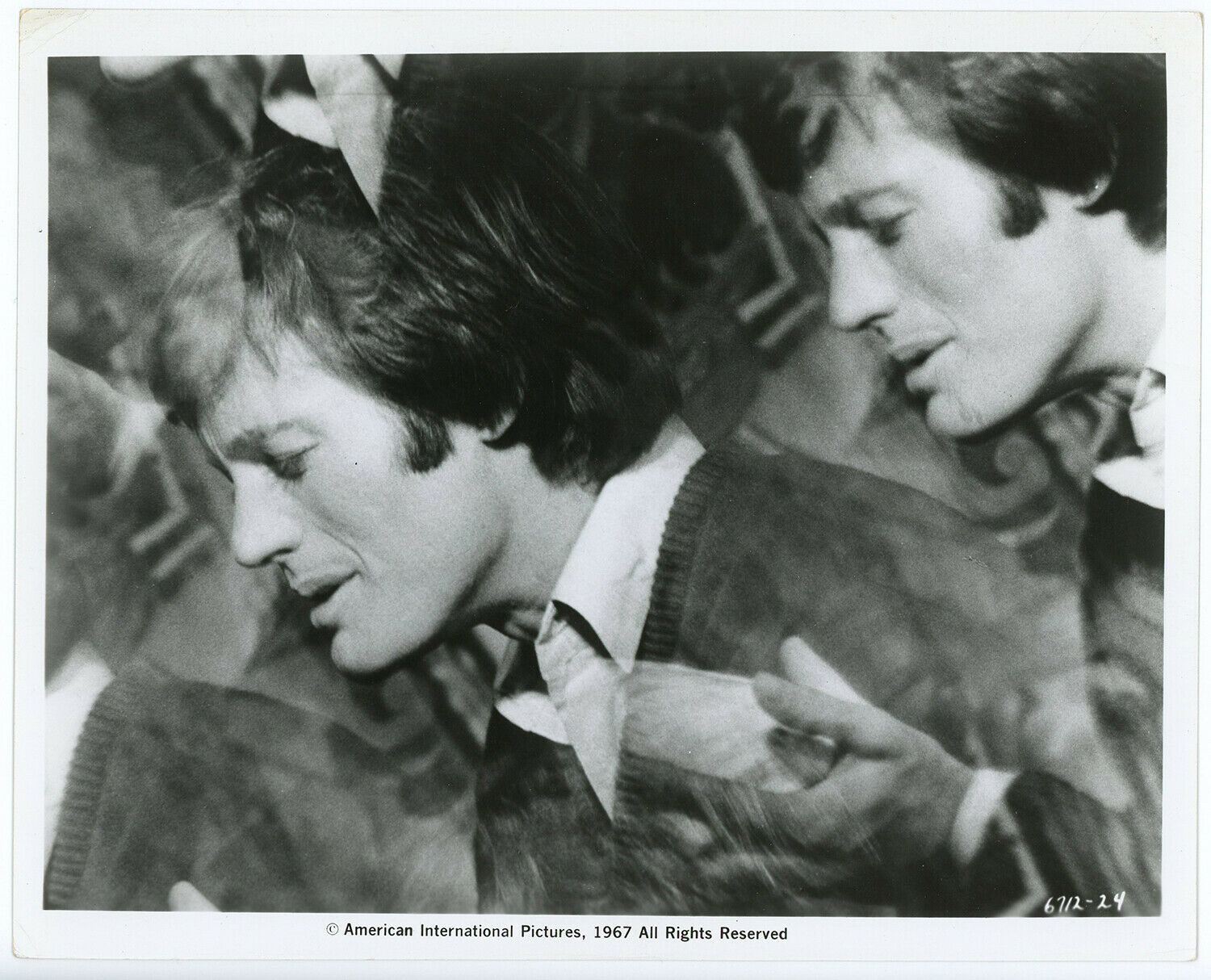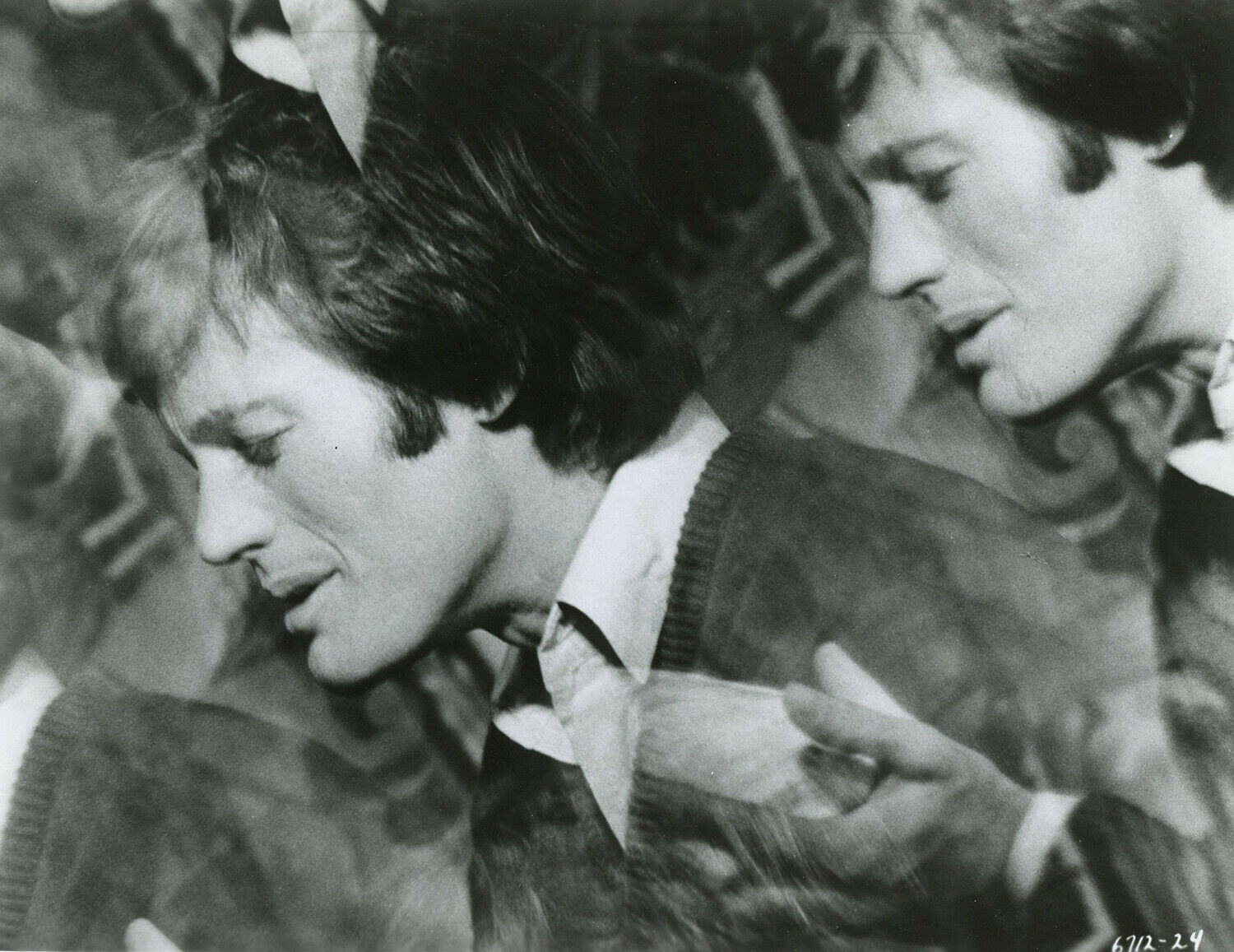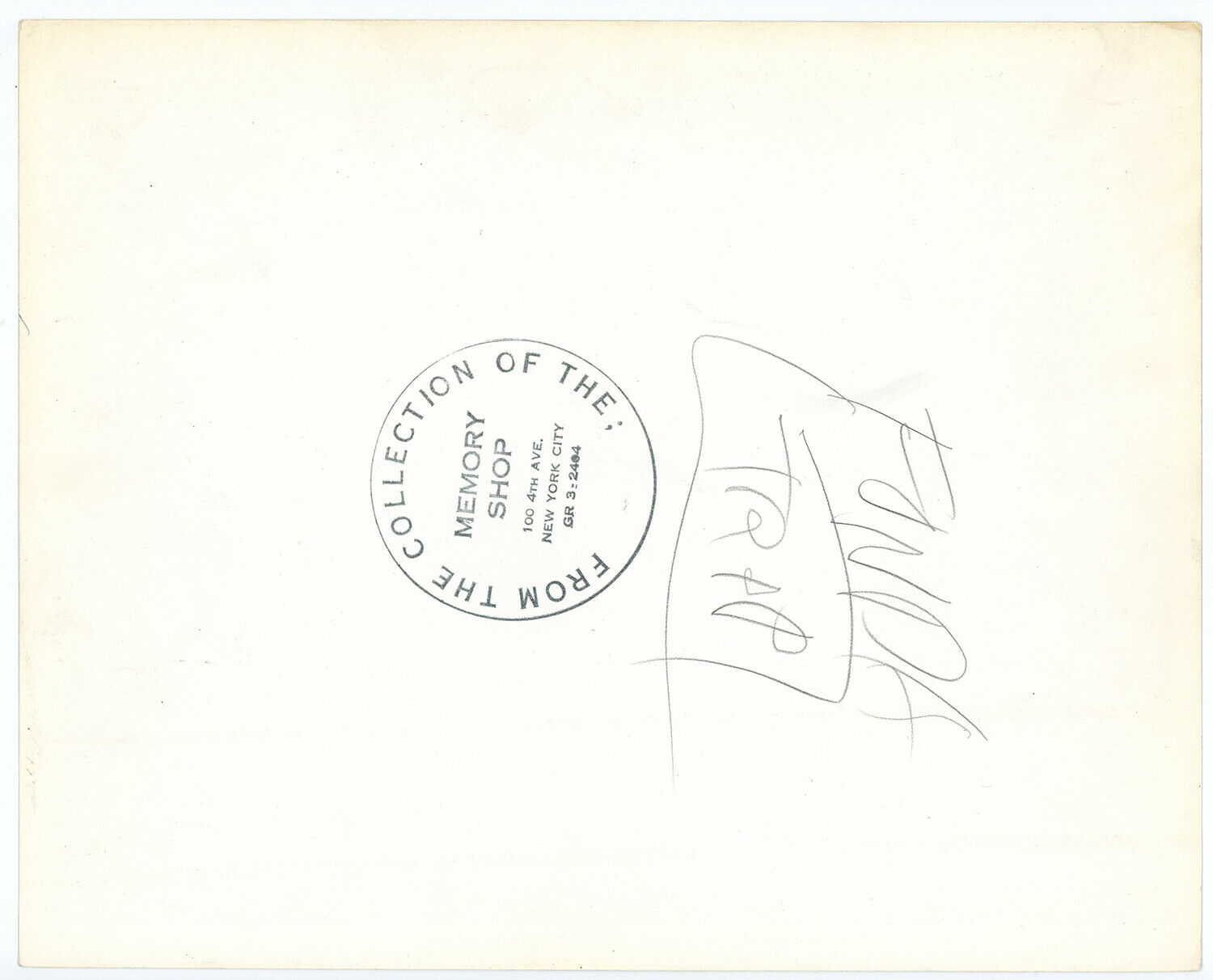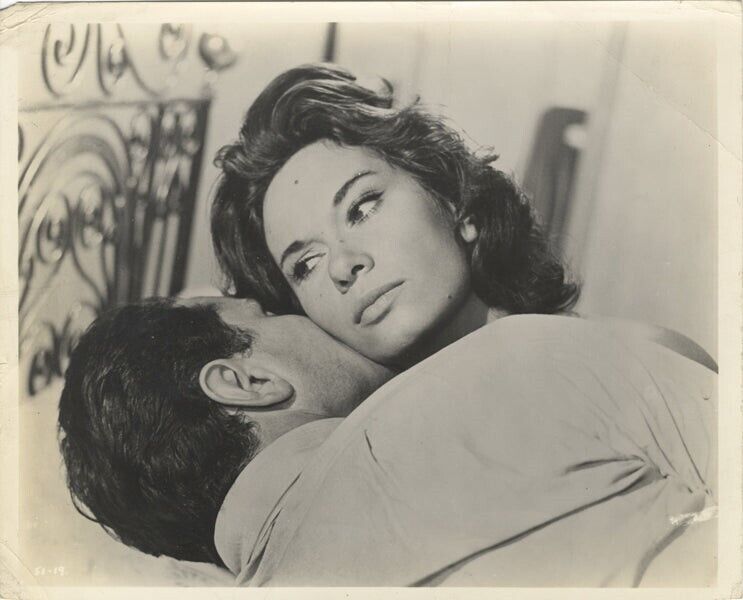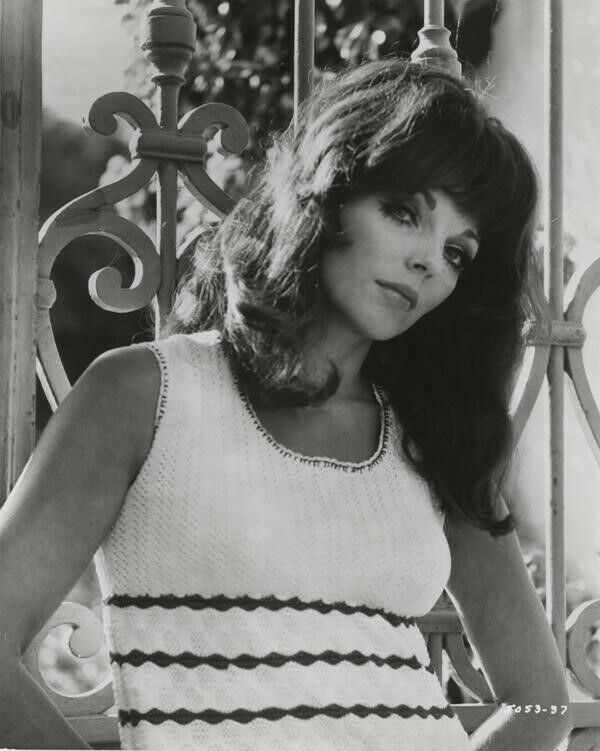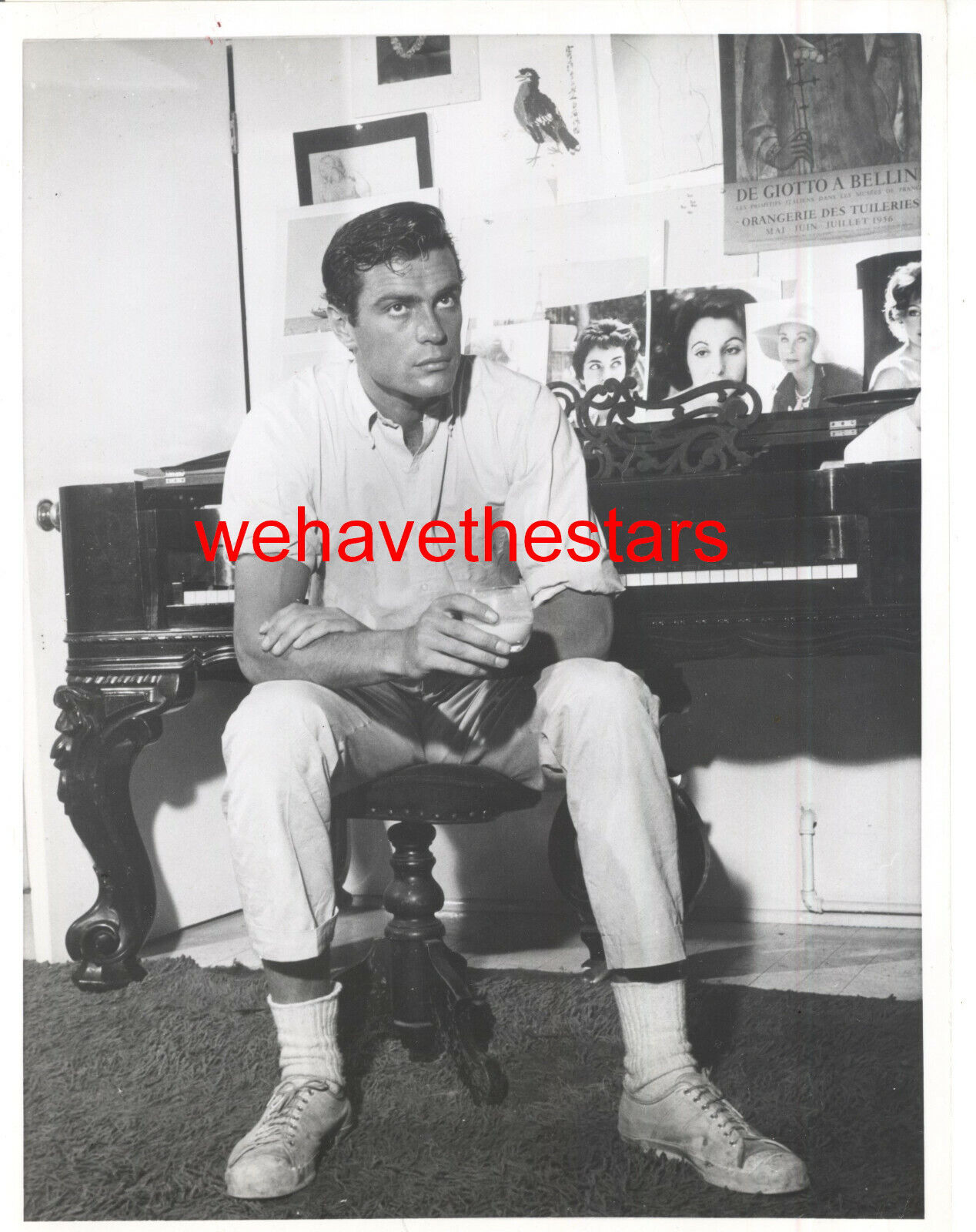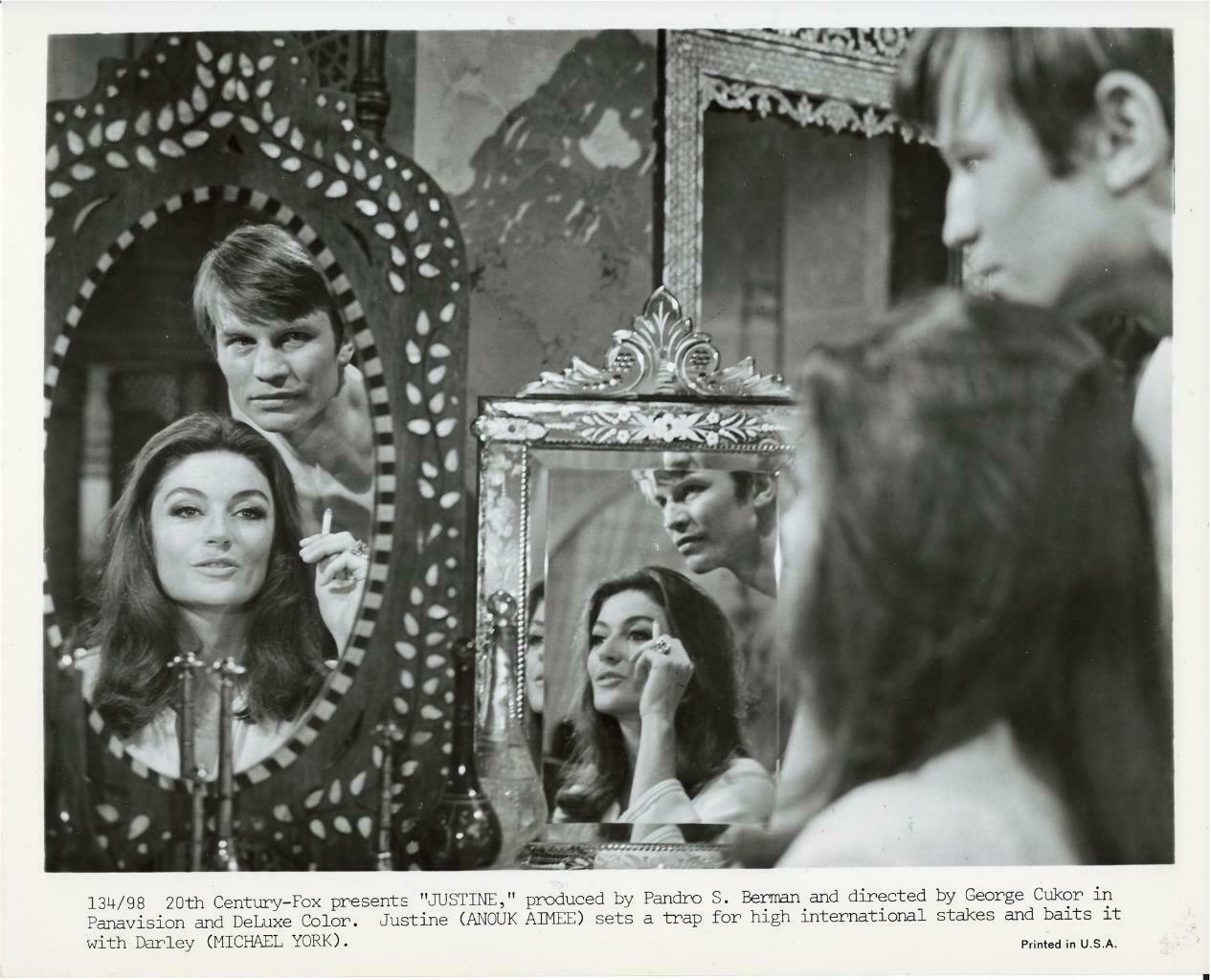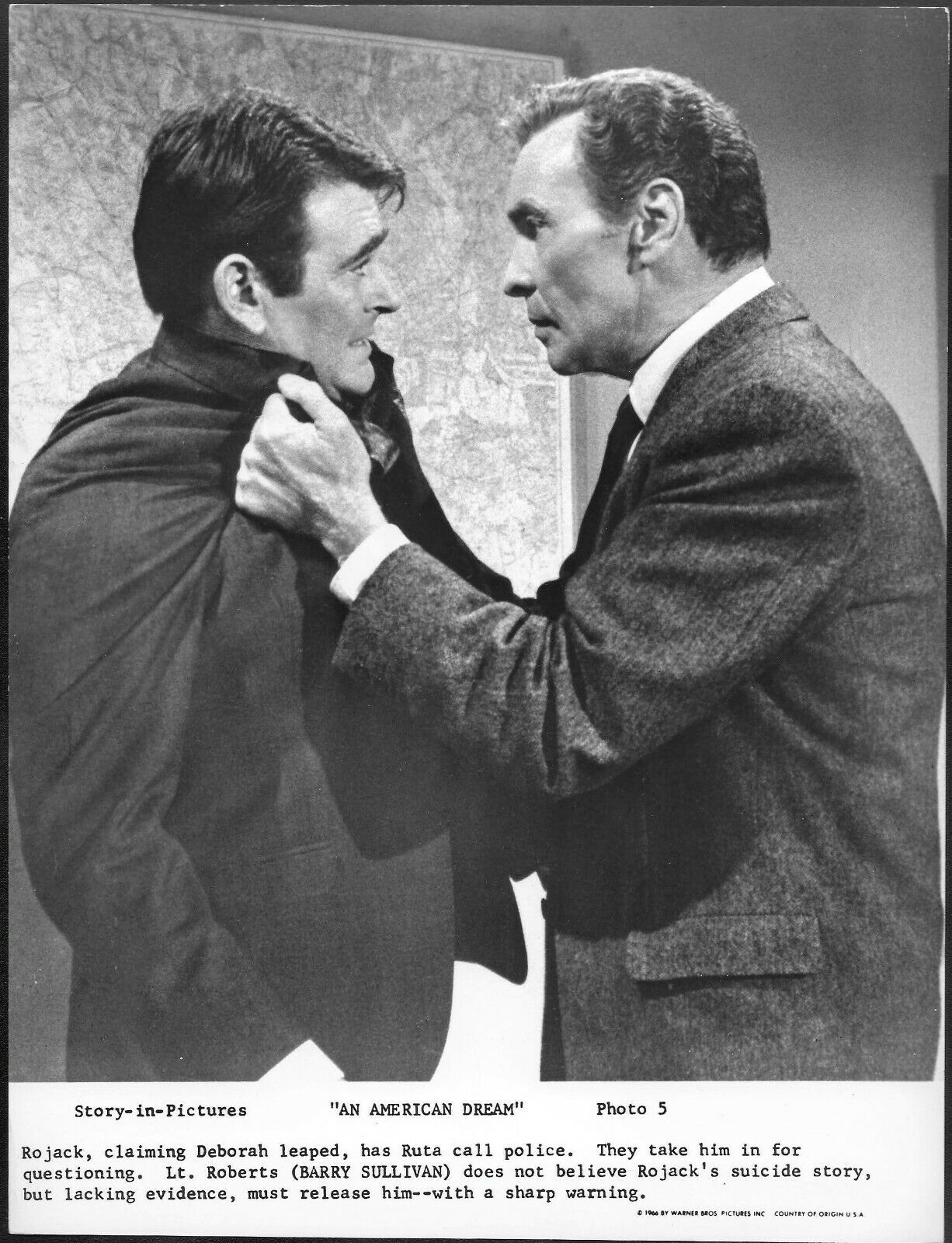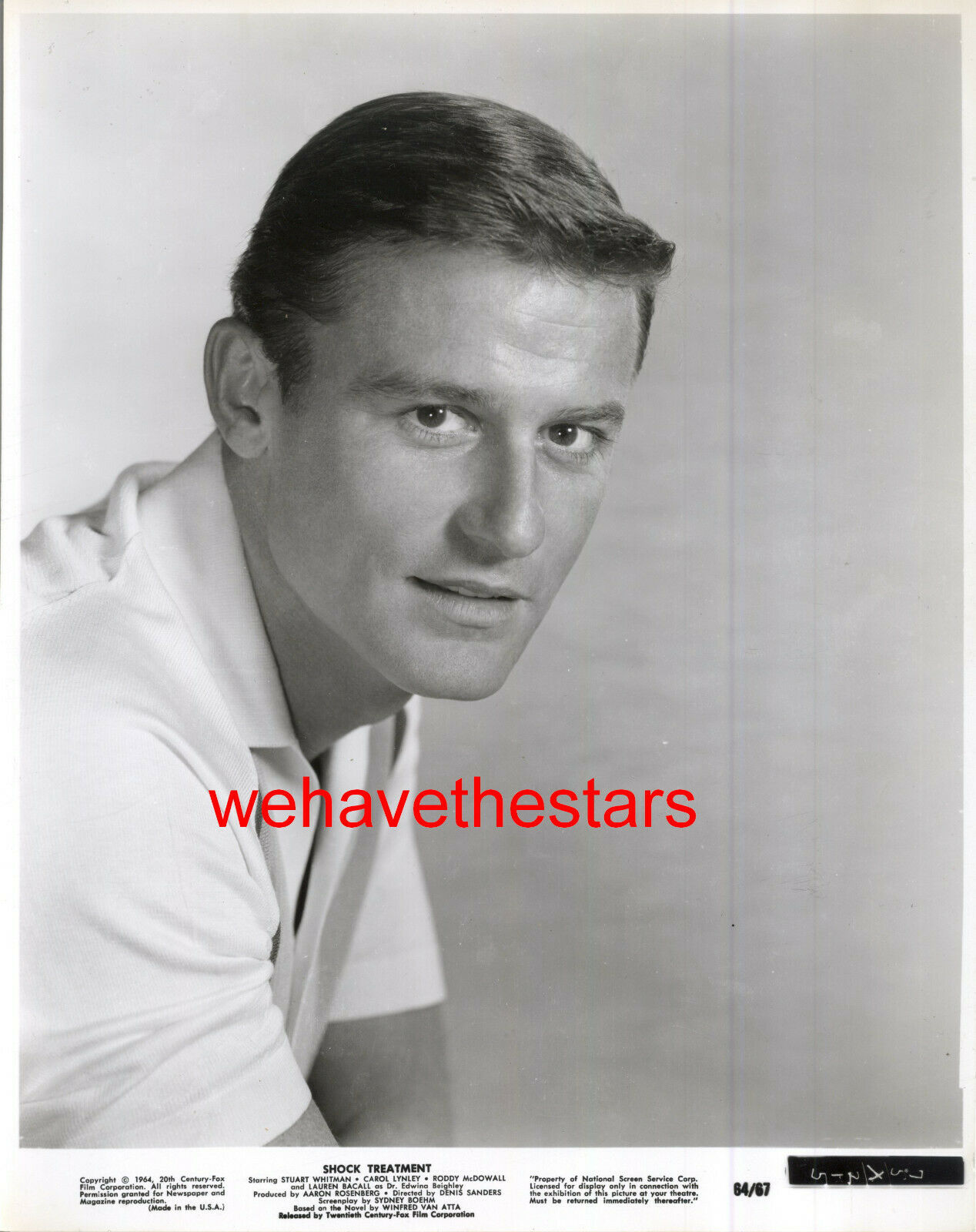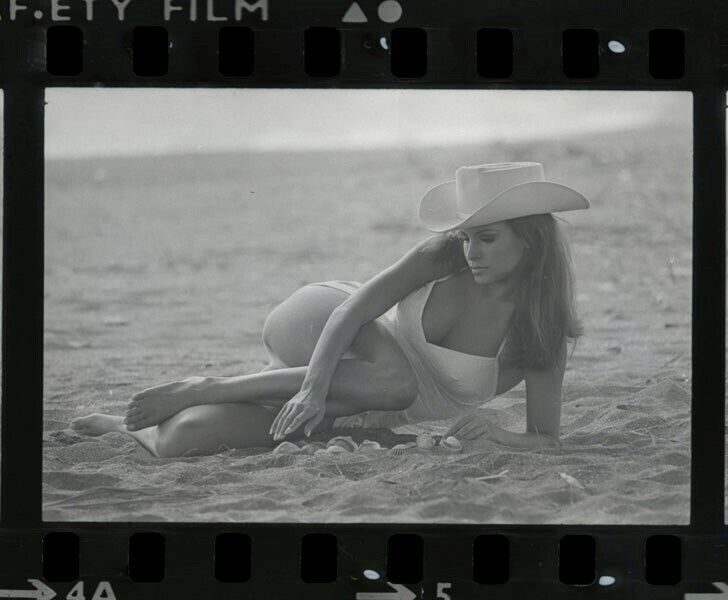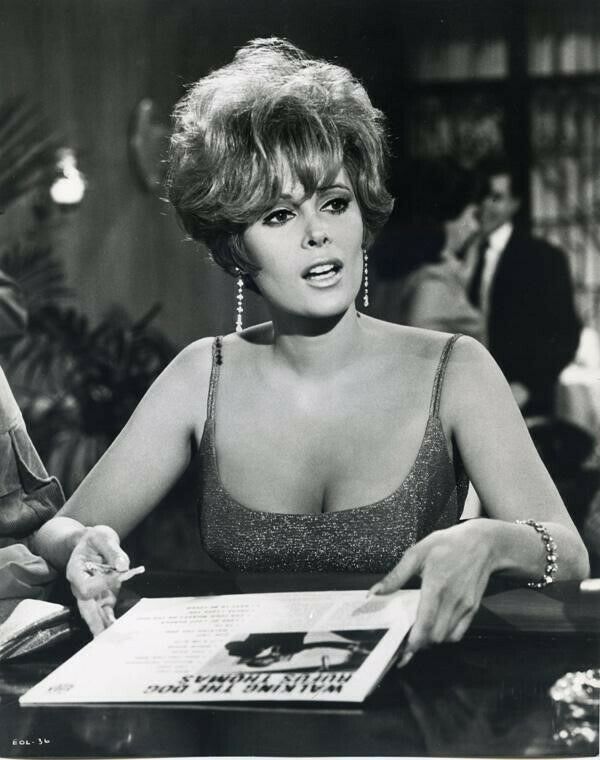-40%
Kaleidoscopic Peter Fonda Photograph Original 1967 Counterculture Film The Trip
$ 2.61
- Description
- Size Guide
Description
ITEM: This is a vintage and original American International Pictures production still photograph showing a trippy, kaleidoscopic view of Peter Fonda in his role in the 1967 drama film, "The Trip". This counterculture-era psychedelic film was directed by Roger Corman, written by Jack Nicholson, and shot on location in and around Los Angeles. Fonda stars as a young television commercial director who drops acid in search of help with his troubled emotional life.Photograph measures 10" x 8" on a glossy single weight paper stock.
Guaranteed to be 100% vintage and original from Grapefruit Moon Gallery.
More about Peter Fonda:
Possessing his father's piercing blue eyes, Peter Fonda also inherited his old man's talent, but not the same level of drive and commitment that passed on to older sister Jane. Still, the stubbornness and tenacity that enabled the black sheep of the Fonda acting dynasty to fashion an iconic career as the quintessential 1960s "hippie," also kept him focused into the 21st Century, where, long after Jane's "retirement," he continued to come into his own as an actor of quiet restraint to rival even his famously taciturn father. For many, he would always be Captain America, the spaced-out cat in "Easy Rider" (1969), the low-budget motorbikes-and-drugs road movie that perfectly captured the Zeitgeist of its day and made Fonda, as producer, "filthy rich." To another younger generation, he was simply Bridget Fonda's dad, but there were still chapters yet to be written, having survived the classic "dysfunctional" family and putting the substance abuse of his youth behind him.
Born Feb. 23, 1940 in New York, NY to his famous father, actor Henry Fonda and financier Frances Ford Seymour, Fonda was the younger brother of big sis, Jane. Tragically, his mother took her own life when he was just 10 and on his 11th birthday, he accidentally shot himself - nearly dying as well. As he grew older, the tormented Fonda traded his Eastern boarding school existence for the Midwestern stability of his Aunt Harriet and Uncle Jack's Omaha, Nebraska - Henry Fonda's hometown. It was there that he first gravitated to the stage, acting in the same community playhouse that had once nurtured his father, before quickly moving to Broadway in 1961 and starring as the earnest Private Ogletorpe of "Blood, Sweat and Stanley Poole." He also acted in a 1962 episode of ABC's "Naked City" while in New York, and for the next few years, alternated between NYC and Hollywood, progressing from the boy-next-door of his feature debut, "Tammy and the Doctor" (1963), to the rebel biker of Roger Corman's "The Wild Angels" (1966). En route, he delivered a strong portrayal of a neurotic infatuated with Jean Seberg's "Lilith" (1963) - but it was his second picture with Corman - "The Trip" (1967) - which laid the groundwork for filmmaking history, introducing him to Jack Nicholson (its screenwriter) and Dennis Hopper, whose intuitive, improvisatory approach to acting had allegedly led to an eight-year exile from Hollywood.
Co-written by Fonda, Hopper - who also directed and co-starred - and Terry Southern, "Easy Rider" boasted a great soundtrack of late 1960s rock music and featured a 16mm LSD sequence, during which Hopper coaxed Fonda up on a headstone in a New Orleans cemetery to confront his real mother's 1950 suicide ("Mother, why did you?"). Remembering the catharsis later, he said, "That was it. That was the high point of the whole thing. That was real tears, real time, a real question." Hailed by critics, "Easy Rider" earned a bundle and sent Hollywood studios scrambling to duplicate its uniqueness; the resulting shake-up opening the door to a new generation of filmmakers like Martin Scorsese and Francis Ford Coppola. Though Nicholson stole the show as the wealthy alcoholic who joins the two rebels on their sojourn, Fonda's marketability soared, and for nearly a decade, he starred in B-movies made on the strength of his name. Ironically, the hippie-capitalist's salary was always a third to a half of the total budget. The pictures invariably suffered, and his reputation for being difficult ("You know, I didn't play the game in town") precluded his working with better talent in bigger-budget pics.
Fonda and Hopper reteamed on Hopper's virtually incomprehensible and pretentious "The Last Movie" (1971), but a falling out over "Easy Rider" profits made Hopper's name taboo around Fonda's Montana digs. He branched into directing at the helm of a critically-acclaimed commercial failure - the offbeat Western "The Hired Hand" (1971) - opting to step far away from his Captain America pose, as a cowboy who g s to work for the wife (Verna Bloom) he had deserted seven years before. His foray into experimental sci-fi, "Idaho Transfer" (1973), taught him never to again invest his own money in a directing project, and "Wanda Nevada" (1979), his last film as director, gave him the only opportunity of his career to work with his father. Convinced that the beard he was wearing looked fake, the older Fonda insisted his son shoot him from a distance, but Peter's response was to throw some dirt and spit licorice juice in his father's face to weather his countenance.
Fonda enjoyed a memorable turn in the non-stop actioner "Dirty Mary, Crazy Larry" (1974), stealing money for a competition sports car, then careening around rural California accompanied by Susan George with a demonic officer of the law (Vic Morrow) in hot pursuit. He also delivered the goods as a fishing boat captain duking it out with a nemesis (Warren Oates) in Thomas McGuane's "92 in the Shade" (1975), and as an investigative reporter in "Futureworld" (1976), the strong sequel to 1973's "Westworld." Fonda was back on a bike for the pointless moneymaker "Cannonball Run" (1981) and the 1983 epic "Dance of the Dwarfs," in which he was a drunken helicopter pilot searching for a lost pygmy tribe - both of which epitomized the decline in quality of his projects. There were starring turns in two 1983 foreign films ("Peppermint Frieden" from West Germany; "All Right, My Friend" from Japan), followed by forgettable titles like "Certain Fury" (1985) and "Mercenary Fighters" (1987)- making "The Rose Garden" (1989) look like an inspired choice by comparison. His contributions to the script of "Fatal Mission" (1990), in which he starred as a gung-ho war hero, failed to save that promising film from its disastrous final reel.
Things started to turn around for Fonda with his understated portrayal of the vampire hunting Van Helsing in Michael Almereyda's quirky "Nadja" (1994), but his big break came when Nick Nolte passed on the leading role in Victor Nunez's "Ulee's Gold" (1997). Fonda gave the performance of his life as an emotionally crippled beekeeper raising his granddaughters and experiencing romance with a divorcee (Patricia Richardson), drawing raves and reminding people of the kind of decent yet stoic loner that his father made a career of playing. Looking through the lens, Nunez could see the elder Fonda in the son's drooping shoulders and flat-footed walk. The actor described his technique to USA Today: "It's like a little pond, no movement on the surface, so you can look down. If I overdramatize, it would disturb the surface. You won't see the depth." Fonda followed up this career highlight with a starring turn as Gideon Prosper, a man blinded by sorrow over the death of his wife, in "The Tempest" (1998), NBC's novel Civil War take on the Shakespeare classic, and gave an even more nuanced (and Emmy-nominated) turn as the passive, pitiful spouse of Ayn Rand (Helen Mirren) in "The Passion of Ayn Rand" (Showtime, 1999).
Fonda teamed with fellow 1960s icon Terrence Stamp in Steven Soderbergh's "Point Blank"-like revenge thriller "The Limey" (1999), which used elements from both actors' real-life pasts in improvisational moments during filming. The director's virtuoso editing style paid homage to the Godardian New Wave jump-cutting that inspired the original "Point Blank," and Fonda had a blast patterning his corrupt Hollywood record exec after some of the self-absorbed industry types whose paths he had crossed. He also got a chance to play opposite Thomas the Tank Engine in Britt Allcroft's live-action adaptation "Thomas and the Magic Railroad" (2000), creating a convincing grandpop for the children who frequented Shining Time Station.
Fonda was honored with a star on the Hollywood Walk of Fame in 2003 and in 2007, finally returned to the big screen in a pair of well-received supporting roles. Still first on the wish list for any motorcycle-related film, he co-starred with Nicholas Cage in an adaptation of the Marvel Comic "Ghost Rider" (2007) playing villain Mephistopheles with an unsettling, understated coolness that brilliantly contrasted the roar of the hero's engine. Fonda took on another bad guy in the James Mangold remake of "3:10 to Yuma," co-starring with Russell Crowe and Christian Bale. The character-driven Western featured Fonda as career killer Byron McElroy who gives Crowe's Ben Wade cause to reconsider his own path. The film opened at number one at the box office and critics hailed it among the best of the season's slew of Westerns. On August 16, 2019 Fonda died at age 79 from respiratory failure due to lung cancer.
Biography From TCM | Turner Classic Movies
